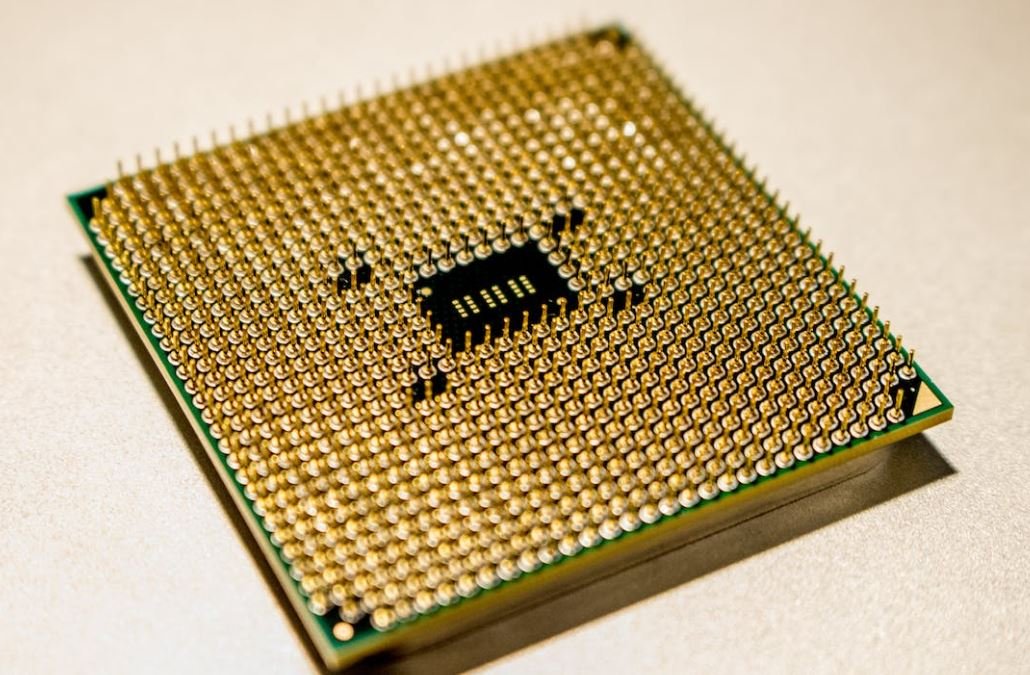Applications Meaning in Computer
Applications are an integral part of the computer world, allowing users to perform various tasks and functions. From productivity and entertainment to communication and data analysis, applications have revolutionized the way we work and play. In this article, we will explore the meaning of applications in the computer context, their significance, and the various types of applications available today.
Key Takeaways:
- Applications in computers refer to software programs that enable users to perform specific tasks.
- Types of applications include productivity, entertainment, communication, utility, and specialty software.
- Applications can be web-based or installed on a computer or mobile device.
- Applications are created using programming languages, frameworks, and development tools.
- Application stores and marketplaces allow users to discover, download, and update different applications.
What are Applications?
In the world of computers, applications, also known as software or programs, refer to a collection of instructions that enable a computer system to perform specific tasks or functions. **They provide users with a platform to interact with their computer, perform calculations, create content, play games, and much more**. Applications can range from simple utilities to highly complex and specialized software, often developed by teams of programmers and software engineers.
**Applications can be classified into various types based on their purpose**. Some popular categories include:
- Productivity applications: These applications help users perform tasks related to organization, document creation, project management, and more. Examples include word processors, spreadsheets, and presentation software.
- Entertainment applications: These applications are designed for leisure and entertainment purposes. They include video games, multimedia players, streaming platforms, and virtual reality experiences.
- Communication applications: These applications facilitate communication between individuals or groups. They include email clients, instant messaging apps, video conferencing software, and social media platforms.
- Utility applications: These applications provide tools and services to enhance the computer’s functionality. Examples include antivirus software, disk cleaners, system optimization tools, and file converters.
- Specialty applications: These applications serve specific industries or professions. They can be found in fields such as healthcare, engineering, finance, design, and more.
**Applications can be accessed in different ways**. Some applications are web-based and accessible through internet browsers. Other applications require installation on a computer or mobile device, allowing for offline usage. With the rise of cloud computing, many applications now offer a combination of web-based functionality and offline capabilities.
The Development of Applications
**Applications are created through the process of software development**. This involves the use of programming languages, frameworks, and development tools to write code that instructs the computer on how to perform specific tasks. The development process typically includes several stages, such as analysis, design, coding, testing, and deployment.
*Interesting Fact: The first computer application is often attributed to Ada Lovelace, who created an algorithm for Charles Babbage’s Analytical Engine in the 1840s. Her algorithm is considered the world’s first computer program.*
Developers use various programming languages depending on the target platform and the functionalities required by the application. Some popular programming languages for application development include:
- Java
- C#
- Python
- JavaScript
- C++
Frameworks and development tools offer libraries and pre-built components to simplify the application development process and enhance efficiency. These tools can range from simple text editors to complex integrated development environments (IDEs). Examples of popular frameworks include React, Angular, and Django.
Application Stores and Marketplaces
As the popularity of applications skyrocketed, **platforms such as app stores and marketplaces emerged to facilitate the distribution and accessibility of applications**. These digital platforms allow users to discover, download, purchase, and update applications for their devices.
*Interesting Fact: The App Store, launched by Apple in 2008, was the first official app marketplace, making it easier for developers to reach a wider audience.*
Application stores, such as the Apple App Store, Google Play Store, Microsoft Store, and others, offer a wide range of applications for various platforms, including desktop computers, smartphones, tablets, and smart TVs. **These marketplaces provide users with a secure and convenient way to explore and download applications according to their needs and preferences**.
Tables:
| Programming Language | Popularity | Platform |
|---|---|---|
| Java | High | Cross-platform |
| C# | Moderate | Windows |
| Python | High | Cross-platform |
| Framework | Language | Purpose |
|---|---|---|
| React | JavaScript | Building user interfaces |
| Angular | TypeScript | Web application development |
| Django | Python | Web backend development |
| Application Store | Launch Date | Platform |
|---|---|---|
| Apple App Store | July 10, 2008 | iOS |
| Google Play Store | October 22, 2008 | Android |
| Microsoft Store | October 22, 2009 | Windows |
The ever-evolving world of applications continues to shape the way we interact with computers and technology. From mobile apps to complex software systems, applications have become an indispensable part of our daily lives. With the advancements in technology, **we can expect even more innovative and powerful applications in the future**.

Common Misconceptions
Misconception 1: Applications are the same as software programs
There is a common misunderstanding that applications and software programs are interchangeable terms. However, applications can be thought of as a broader term that encompasses software programs as well as other types of software that serve specific purposes.
- Applications are software programs, but not all software programs are applications.
- Applications may refer to mobile apps, web applications, or desktop software.
- Software programs can be a part of an application, but an application is a comprehensive package that includes various components.
Misconception 2: Applications are only used on computers
Another misconception is that applications are solely used on computers or laptops. However, in today’s digital world, applications can be accessed and utilized on various devices, such as smartphones, tablets, smart TVs, and even wearable devices.
- Mobile applications (apps) are specifically designed for smartphones and tablets.
- Web applications can be accessed through web browsers on multiple devices.
- Applications can also be found in devices like smart TVs, gaming consoles, and smartwatches.
Misconception 3: All applications require internet connectivity
One of the most widespread misconceptions is that all applications rely on an internet connection. While many applications utilize internet connectivity to provide certain features or access online resources, there are also numerous applications that function entirely offline.
- Offline applications can perform tasks and offer functionality without the need for an internet connection.
- Some applications may offer offline modes, allowing users to access certain features without internet connectivity.
- Certain types of applications, such as offline games or productivity tools, are designed for offline use.
Misconception 4: Applications are always free
Some people assume that all applications are free to use or download. While many applications offer free versions or have free alternatives, there are also numerous paid applications that offer additional features or premium content.
- Freemium applications offer a basic version for free, but may require payment to access advanced features or remove advertisements.
- Paid applications can be purchased upfront or require subscriptions for ongoing access.
- Not all free applications are completely free, as some may include in-app purchases or display ads.
Misconception 5: Applications are inherently secure
Many users mistakenly believe that all applications are inherently secure and free from vulnerabilities. However, applications, just like any software, can contain security flaws that hackers can exploit.
- Applications may require regular updates to patch security vulnerabilities and protect against emerging threats.
- Downloading applications from trusted sources reduces the risk of installing malicious software.
- Using strong passwords and practicing good security measures is essential to protect personal information within applications.

The Impact of Applications in the Modern World
As technology continues to advance, applications have become an integral part of our lives. From managing our finances to connecting with loved ones, applications have revolutionized the way we interact with computers. This article explores various aspects and significance of applications in computer systems.
The Growth of Mobile Applications
In recent years, the use of mobile applications has skyrocketed, with millions of new apps being developed and downloaded worldwide. This table showcases the staggering growth of mobile app downloads from 2015 to 2020:
| Year | Number of Mobile App Downloads (in billions) |
|---|---|
| 2015 | 100 |
| 2016 | 140 |
| 2017 | 197 |
| 2018 | 258 |
| 2019 | 304 |
| 2020 | 385 |
The Most Popular App Categories
There are countless categories of applications available to users, each serving different purposes. This table highlights the most popular app categories based on user reviews:
| Category | Percentage of Positive User Reviews |
|---|---|
| Social Media | 80% |
| Entertainment | 75% |
| Productivity | 70% |
| Health & Fitness | 85% |
| E-commerce | 90% |
The Economic Impact of App Development
The app development industry has experienced remarkable growth, generating substantial economic value. This table represents the revenue generated by app stores in 2020:
| App Store | Revenue (in billions of USD) |
|---|---|
| Apple App Store | 64.3 |
| Google Play Store | 38.6 |
| Huawei AppGallery | 12.3 |
| Amazon Appstore | 3.7 |
The Role of Applications in E-commerce
Applications have transformed the way we shop online, offering convenience and accessibility. The following table presents the percentage of customers who prefer using mobile applications for online shopping:
| Demographic | Percentage of Customers |
|---|---|
| Millennials (18-34 years) | 75% |
| Generation X (35-54 years) | 63% |
| Baby Boomers (55+ years) | 43% |
Application Security Vulnerabilities
While applications offer immense benefits, they are also prone to security vulnerabilities. The table below displays common types of application security vulnerabilities:
| Vulnerability Type | Occurrences (in thousands) |
|---|---|
| Cross-Site Scripting (XSS) | 8,500 |
| SQL Injection | 5,200 |
| Session Hijacking | 3,750 |
| Remote Code Execution | 2,900 |
Popular Programming Languages for App Development
Various programming languages are used to develop applications, each with its own strengths and features. This table demonstrates the popularity of programming languages among app developers:
| Programming Language | Percentage of App Developers |
|---|---|
| JavaScript | 65% |
| Java | 45% |
| Python | 35% |
| Swift | 20% |
Growth in App Usage during the Pandemic
The COVID-19 pandemic has led to an increased reliance on applications for various purposes. This table presents the growth in app usage across different categories during the pandemic:
| Category | Percentage Increase in App Usage |
|---|---|
| Work Collaboration | 170% |
| Video Conferencing | 220% |
| Online Learning | 240% |
| Healthcare | 180% |
Applications and Personal Data Privacy
With the increasing use of applications, concerns regarding personal data privacy have surfaced. This table illustrates the primary reasons for user data privacy breaches:
| Reason | Percentage of Breaches |
|---|---|
| Inadequate Data Encryption | 40% |
| Insufficient User Consent | 30% |
| Improper Data Storage | 20% |
| Third-party Access | 10% |
The Future of Applications in Technology
Applications have become an integral part of our digital lives, and their significance will only continue to grow. As technology advances, applications will further evolve to fulfill our needs, making our lives more convenient and efficient.
In conclusion, applications have revolutionized the way we interact with computers, enriching our lives and transforming various industries. From the explosive growth of mobile app downloads to the economic impact of app development, the influence of applications in the modern world is undeniable. However, it is important to address and mitigate security and privacy concerns associated with app usage to ensure a safe and trustworthy digital environment.
Frequently Asked Questions
What is the meaning of Applications in computer?
Applications in computer refer to software programs that are designed to perform specific tasks or functions on a computer system.
What are some examples of computer applications?
Some examples of computer applications include word processing software, spreadsheet software, graphic design software, video editing software, web browsers, and computer games.
How are applications different from operating systems?
Applications are the programs that users interact with to perform specific tasks, while operating systems are the underlying software that manages computer hardware and provides a platform for running applications.
Can applications be installed on any computer?
Applications can typically be installed on any computer that meets the system requirements of the application. However, some applications may be designed specifically for certain operating systems or hardware platforms, and may not be compatible with others.
How can I install an application on my computer?
The process of installing an application on your computer typically involves downloading the application file from a website or app store, running the installer, and following the on-screen instructions. The specifics may vary depending on the operating system and the application.
What is the purpose of applications in computer systems?
The purpose of applications in computer systems is to enable users to perform specific tasks or functions, such as word processing, data analysis, graphic design, communication, entertainment, and more.
Are all applications free to download and use?
No, not all applications are free to download and use. While there are many free applications available, others may require a purchase or subscription to access their full features or remove advertisements.
Can applications be updated?
Yes, applications can be updated to fix bugs, add new features, improve performance, and address security vulnerabilities. Most applications provide an update mechanism either built-in or through software updates provided by the developer.
What should I do if an application is not working properly?
If an application is not working properly, you can try troubleshooting steps such as restarting your computer, updating the application, reinstalling the application, or contacting the application’s support team for further assistance.
Can I develop my own applications?
Yes, you can develop your own applications if you have the necessary programming knowledge and skills. There are various programming languages and software development tools available to help you create your own applications.





